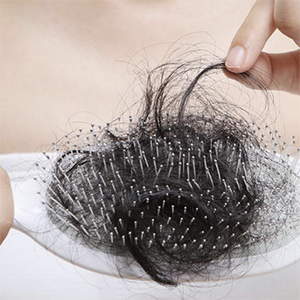Sensitive scalp: an epidemiologic study in patients with hair loss
 Smart Citations
Smart CitationsSee how this article has been cited at scite.ai
scite shows how a scientific paper has been cited by providing the context of the citation, a classification describing whether it supports, mentions, or contrasts the cited claim, and a label indicating in which section the citation was made.
Sensitive scalp is a common condition defined by the presence of erythema and/or subjective symptoms as pain, pricking, burning, pruritus of the scalp elicited by triggering factors. Trichodynia is a term that describes a sensation of pain or burning of the scalp and was assumed to be part of sensitive scalp. Main goal of the study was to establish the prevalence of sensitive scalp in patients with trichological disorders. We conducted a retrospective observational study recorded: age, sex, trichological disorder (telogen effluvium, androgenetic alopecia, alopecia areata, scarring alopecia, trichotillomania) and scalp symptoms (pruritus, pain, burning and itching sensation). We studied 317 patients of whom 102 patients (32%) complained of sensitive scalp. Telogen effluvium patients had a significantly higher prevalence of sensitive scalp (p <0.001), pain (p= 0.028), burning sensation (p=0.018), pruritus (p=0.016) and trichodynia (p<0.001) than other patients with alopecias. Likewise, AA patients had a statistically significant higher prevalence of pruritus (p=0.0256) and trichodynia (p=0.0223) than other alopecias patients. Sensitive scalp is a frequent symptom reported by patients with hair loss. Telogen effluvium and alopecia areata seem to be most associated to sensitive scalp.





 https://doi.org/10.4081/dr.2022.9408
https://doi.org/10.4081/dr.2022.9408






